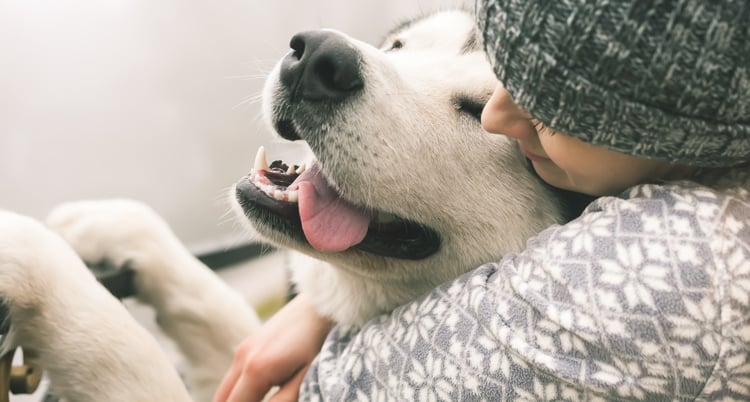
As winter is around the corner, you should start preparing all the necessary to take better care of your dogs. With winter comes cold days and also a reasonable diet plan for each dog to ensure an adequate nutrition intake and, most importantly, a good health to fight against the cold.
Ensuring a nutrient-rich diet to increase your dog's resistance during winter is also of most importance. When the weather changes, so do the dog’s meals, because by then, more chlorine is needed to keep the bodies warm. In addition, in winter, many dogs would refuse to exercise, resulting in the high likelihood of obesity, overweight and health deterioration. This is the very reason why we need to adjust the dog's meal plan.
First, boost calories for your dog by increasing their daily food intake. If there are two meals per day previously, now it should be 3 or 4 meals. Also, add calorie boosters to their meals. Adjusting your dog's diet in winter is crucial, but it should be done little by little to avoid abrupt changes. You should mix old food and new food in a 50/50 ratio for the first few days before gradually increasing the amount of new food in the following days. However, for dogs with high risk of obesity, you need to get them to exercise more and learn about science-based diets for them.
The key point in dog care in winter is to keep your dogs warm. It is a common belief that a thick coat is all the dogs need to stay warm, but reality proves otherwise. You have to keep them warm during winter in different ways. Choose a warm, windproof spot for your furry friend to sleep. If your dog sleeps outside, you can build a small, sturdy house lined with thick carpet. This way, the dog will stay warm all night. The bed also should be kept clean and waterproof always. Dress them up, especially when taking them out for a walk or on extreme cold days. Particularly, for dogs with short or smooth coats, puppies, or old dogs even demand more of your attention.
Additional notes of winter dog care you need to keep in mind, include:
- Full vaccination.
- Paw protection.
- Prevent dry skin for dogs by supplementing fatty acids.
- Avoid letting your dog sleep outside or on hard ground.
